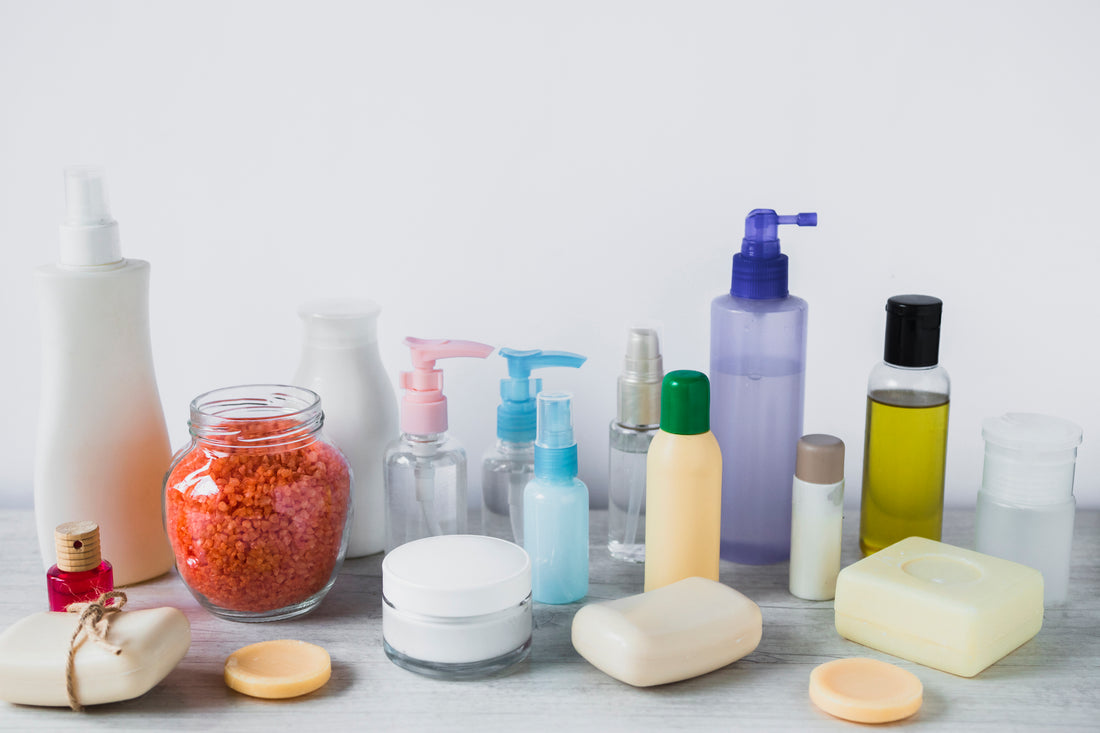
THE CHEMICALS IN COSMETICS AND HEALTH
The use of chemicals in cosmetics has raised concerns about potential toxicity and their effects on human health. Cosmetic products may contain a wide range of chemicals, including preservatives, fragrances, colorants, and active ingredients. While many of these chemicals are considered safe when used as directed, some can have adverse effects on human health if used improperly or in excessive amounts. Here are some key points to consider regarding the toxicity of chemicals used in cosmetics and their effects on human health:
SKIN IRRITATION AND ALLERGIC REACTIONS:
- Many cosmetic chemicals can cause skin irritation or allergic reactions in some individuals. This can include redness, itching, rash, or even more severe reactions like contact dermatitis.
- Common allergens in cosmetics include fragrances, preservatives (e.g., parabens), and certain dyes. It’s important for individuals with sensitive skin or a history of allergies to be cautious when using products containing these ingredients.
SENSITIZATION:
- Prolonged exposure to certain chemicals in cosmetics may lead to sensitization. This means that over time, an individual can develop an allergic reaction to a substance they were previously not allergic to.
- Some fragrances and preservatives are known to be potential sensitisers, and repeated exposure can increase the risk.
ENDOCRINE DISRUPTION:
- Some chemicals in cosmetics, such as phthalates and parabens, have been studied for their potential to disrupt the endocrine system. These chemicals can mimic or interfere with hormones in the body.
- Research on the long-term effects of endocrine-disrupting chemicals in cosmetics is ongoing, but concerns have been raised about their possible links to hormone-related health issues.
CARCINOGENICITY:
- Some ingredients in cosmetics have been classified as potential carcinogens or have raised concerns about their safety.
- For example, talc, when contaminated with asbestos fibres, has been associated with an increased risk of ovarian cancer. Additionally, certain hair dyes containing aromatic amines have been linked to an elevated risk of bladder cancer.
ENVIRONMENTAL IMPACT:
- Many cosmetic ingredients, particularly microplastics and certain UV filters, can have negative environmental impacts when they enter water systems. This can harm aquatic life and ecosystems.
- Regulatory Oversight:
- Regulatory agencies in various countries, such as the U.S. Food and Drug Administration (FDA) and the European Commission, oversee the safety of cosmetics and set guidelines for ingredient safety.
- However, the regulation of cosmetics can vary by region, and not all cosmetic ingredients are subject to the same level of scrutiny.
To mitigate the potential risks associated with cosmetics, it’s important for consumers to:
- Read ingredient labels and avoid products with known allergens or sensitisers if they have a history of skin issues or allergies.
- Follow usage instructions and avoid excessive application of cosmetics.
- Be aware of product recalls and safety alerts issued by regulatory agencies.
- Stay informed about the latest research and developments in cosmetic safety.
ULTIMATELY, THE SAFETY OF COSMETICS DEPENDS ON VARIOUS FACTORS, INCLUDING THE SPECIFIC INGREDIENTS USED, THEIR CONCENTRATIONS, AND INDIVIDUAL SENSITIVITIES.
24cOrbelle, is dedicated to producing natural and chemical-free cosmetic formulations with a focus on protecting consumers’ health. Many individuals seek out products that are free from potentially harmful chemicals, fragrances, and preservatives due to concerns about skin sensitivities and allergies.
- Reduced Risk of Skin Sensitivities: Natural ingredients are generally less likely to cause skin irritations and allergic reactions compared to synthetic chemicals. This can make your products a safer choice for individuals with sensitive skin.
- Environmental Benefits: Natural and chemical-free cosmetics are often produced using sustainable and eco-friendly practices, which can appeal to environmentally conscious consumers.
- Transparency: The absence of chemicals, fragrances, and preservatives in your formulations can enhance transparency and trust with consumers. Clearly listing all ingredients on product labels is also important for transparency.
- Allergen-Friendly: Products free from common allergens are beneficial for those with allergies or skin conditions, as they reduce the risk of triggering adverse reactions.
- Health Consciousness: Many consumers are increasingly conscious of the ingredients in the products they use on their skin, and they appreciate brands that prioritize health and safety.
- Regulatory Compliance: Your products meet all relevant regulatory requirements and safety standards, even when using natural ingredients. Compliance is crucial for consumer safety and trust.
- Product Shelf Life: Without synthetic preservatives, natural cosmetics may have a shorter shelf life. We at 24cOrbelle provide 36 Months shelf life by maintaining the efficacy and quality of the products.
CUSTOMER’S DELIGHT :
- Clear Labeling: We clearly state that your formulations are natural, fragrance-free, and preservative-free. Highlight the benefits of these features.
- Ingredient Transparency: We list all ingredients used in your products, emphasizing their natural origins. Be transparent about sourcing and production processes.
- Education: We Provide information about the benefits of natural ingredients and the potential risks associated with synthetic chemicals. This can help consumers make informed choices.
- Allergy Testing: We offer allergy testing or patch testing for customers concerned about sensitivities to natural ingredients.
- Sustainability: We use sustainable and eco friendly packaging of your products.
By prioritising consumer health and safety and providing high-quality natural cosmetic products, we are making positive impact in the cosmetics industry.
